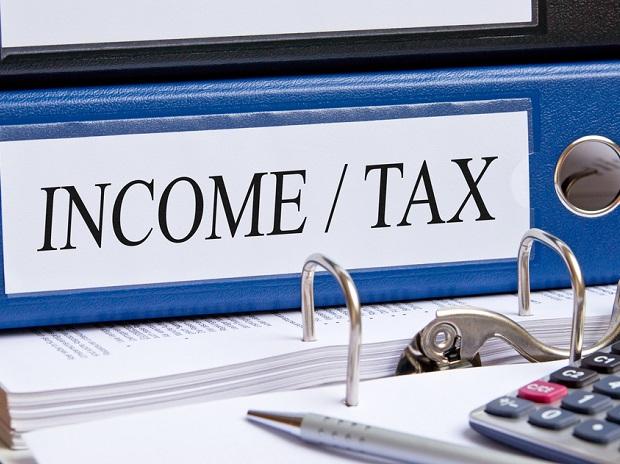Top changes in Income Tax Return forms for assessment year 2021-22

The Central Board of Direct Taxes (CBDT) has notified Income Tax Return (ITR) Forms for the Assessment Year 2021-22 vide Notification No. 21/2021, dated 31-03-2021. Most of the new ITR forms changes are consequential to the amendments made by the Finance Act, 2020 to the Income-tax Act. Did you know that ITR-1 shall not be available to a taxpayer in whose case the tax has been deducted on cash withdrawal under Section 194N? Did you know return filing is also not allowed in ITR-1 or ITR-4 if the tax has been deferred in respect of ESOPs allotted by an eligible start-up? In this article, we take a look at the top changes in Income Tax Return forms for assessment year 2021-22.
ITR – 1 and ITR – 4 cannot be filed in case of deferment of tax on ESOPs
According to Taxmann, the Finance Act, 2020, has allowed to defer the payment or deduction of tax on ESOPs allotted by an eligible start-up referred under Section 80-IAC. The tax is required to be paid or deducted in respect of such ESOPs within 14 days from the earliest of the following period:
(a) After expiry of 48 months from the end of Assessment year in which ESOPs are exercised;
(b) From the date the assessee ceases to be an employee of the organization; or
(c) From the date of sale of shares allotted under ESOP.
Consequently, Rule 12 has been amended to provide that an assessee in whose case payment or deduction of tax in respect of such ESOPs has been deferred shall not be eligible to furnish his return of income in ITR-1 and ITR-4. Corresponding changes have been made to ITR-1 and ITR-4.
In this ESOP connection, do note that if an employee has received ESOPs from an eligible start-up referred to in Section 80-IAC in respect of which the tax has been deferred, the Part B of Schedule TTI (Computation of tax liability on total income) seeks the disclosure of the tax amount which has been deferred in this respect. The ITR Form does not provide any guidance on the computation of the tax to be deferred. In such a situation, the tax to be deferred can be computed in accordance with suitable guidance.
ITR – 1 cannot be filed in case tax has been deducted under Section 194N
This is for ITRs 2 to 7.
Section 194N provides that every banking company (including any bank or banking institution), co-operative bank or a post-office, which is responsible for payment of cash to a person, from one or more accounts maintained by him, shall be required to deduct tax under this provision. Tax under this provision is required to be deducted if the amount of cash withdrawn during the year exceeds Rs 20 lakh in case of certain nonfilers of return and Rs. 1 crore in other cases.
Rule 12 of the Income-tax Rules has been amended to restrict an assessee, in whose case tax has been deducted under this provision, from furnishing return of income in ITR–1. Consequential changes have been made to ITR-1.
In this connection, do note now there is no option to carry forward TDS deducted under Section 194N. Section 199 read with Rule 37BA provides that credit for tax deducted at source shall be given in the assessment year in which such income is assessable. However, where such income is assessable over a number of years, credit for tax deducted at source shall be allowed across those years in the same proportion in which the income is assessable to tax. However, in case of tax deducted under Section 194N, credit for tax deducted shall be allowed in the assessment year relevant to the previous year in which such tax has been deducted. In other words, the TDS deducted under Section 194N shall not be allowed to be carried forward to subsequent years.
Consequential changes due to change in taxability of dividend income
This is for ITRs 1 to 7. The Finance Act, 2020 reverts to taxation of dividends in the hands of the recipient shareholders instead of payment of dividend distribution tax (DDT) on declaration, distribution or payment of dividend by the domestic company. Thus, no DDT shall be payable by the company or mutual fund on any dividend distributed on or after 01-04-2020 and the recipient shall be liable to pay tax on such dividend income.
As per Taxmann, sections 10(34), 10(35), 115-O, 115-R, 115BBDA, etc. have been amended to bring the suitable changes in the Act. The new ITR forms notified for the Assessment Year 2021-22 have been amended to incorporate these changes.
Increase in threshold limit for tax audit
This is for ITR 3 and 6. As per the provisions of section 44AB an assessee shall get the books of accounts audited if it’s gross turnover or receipts during the relevant previous year exceeds Rs 5 crore if the following conditions are satisfied:
(a) Cash receipts, including amount received for sales, turnover or gross receipts, does not exceeds 5% of the aggregate amount received during the previous year; and
(b) Cash payments, including amount incurred for expenditure, does not exceed 5% of the aggregate amount paid during the previous year.
The ceiling of Rs 5 crore has been increased by the Finance Act, 2021 to Rs 10 crore with effect from the assessment year 2021-22.
Previous ITR required the assessee to furnish whether during the year total sales/ turnover/ gross receipts of business exceeds Rs 1 crore but does not exceed Rs 5 crore. Necessary amendments have been brought in the ITR forms as notified for assessment year 2021-22 to enhance the limit.

